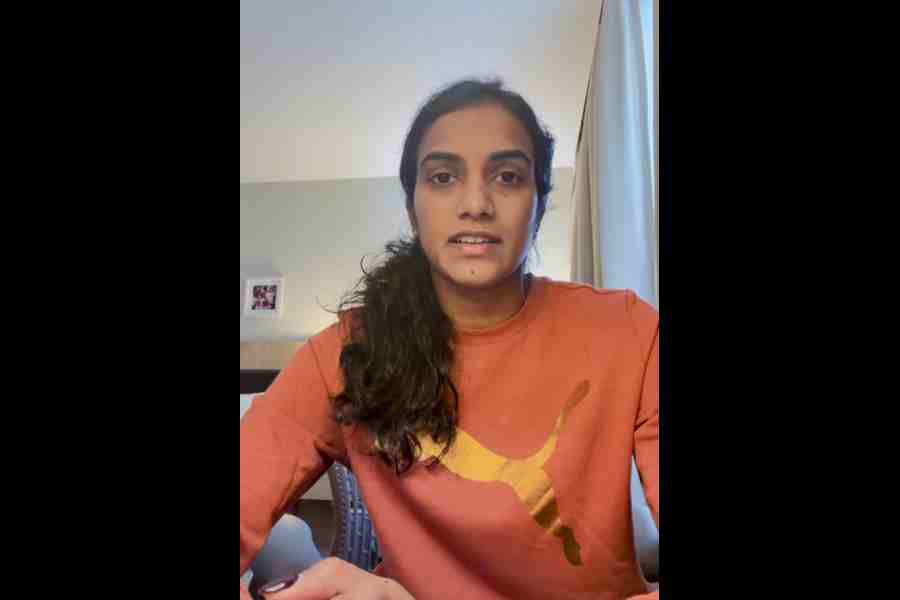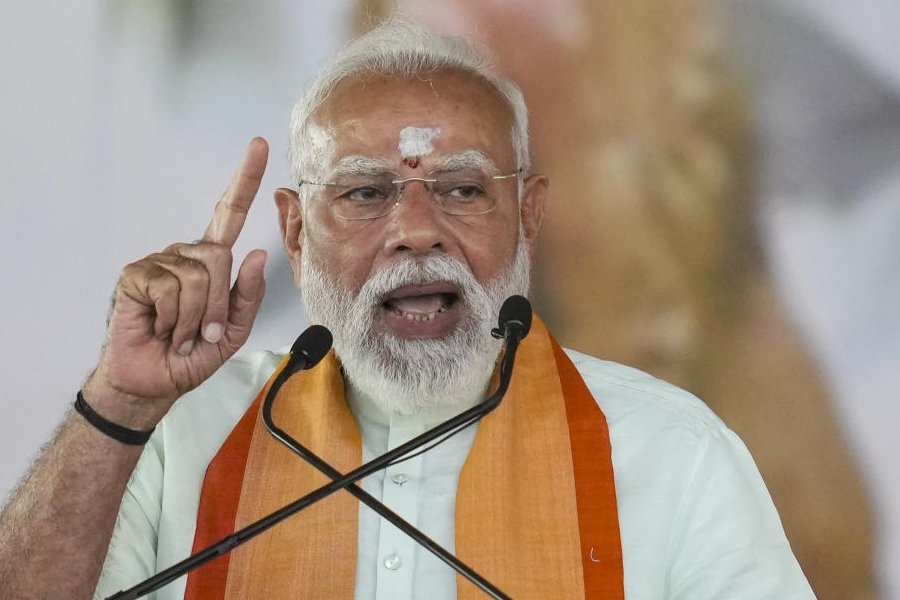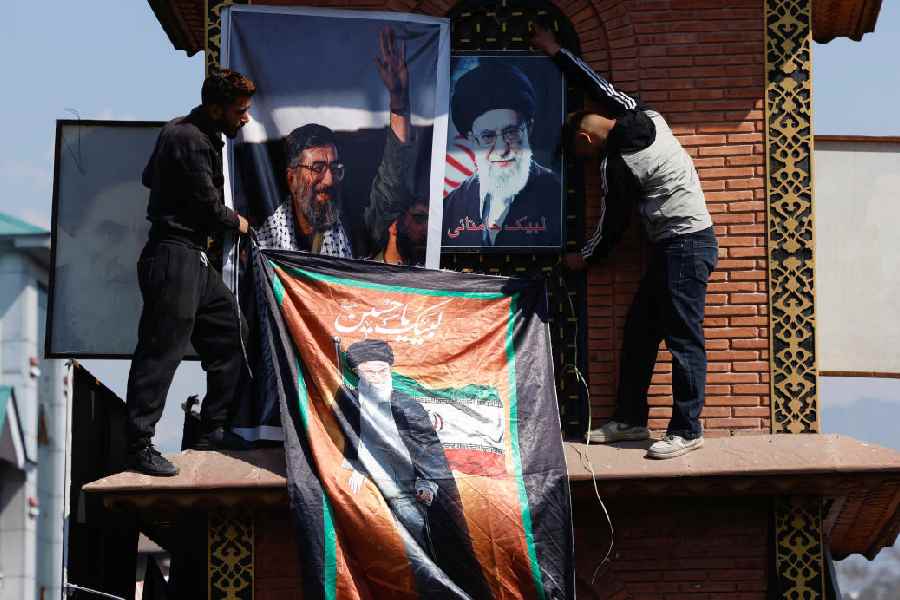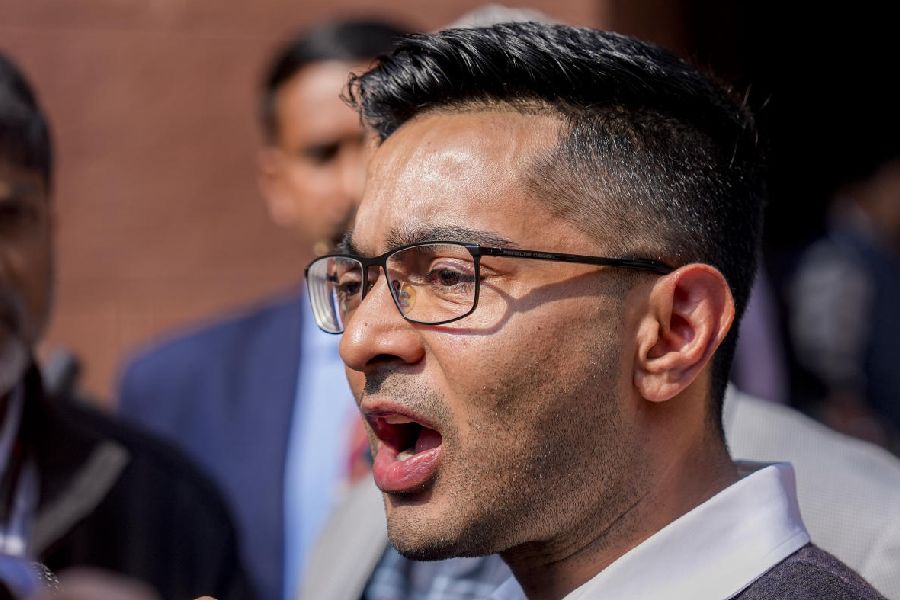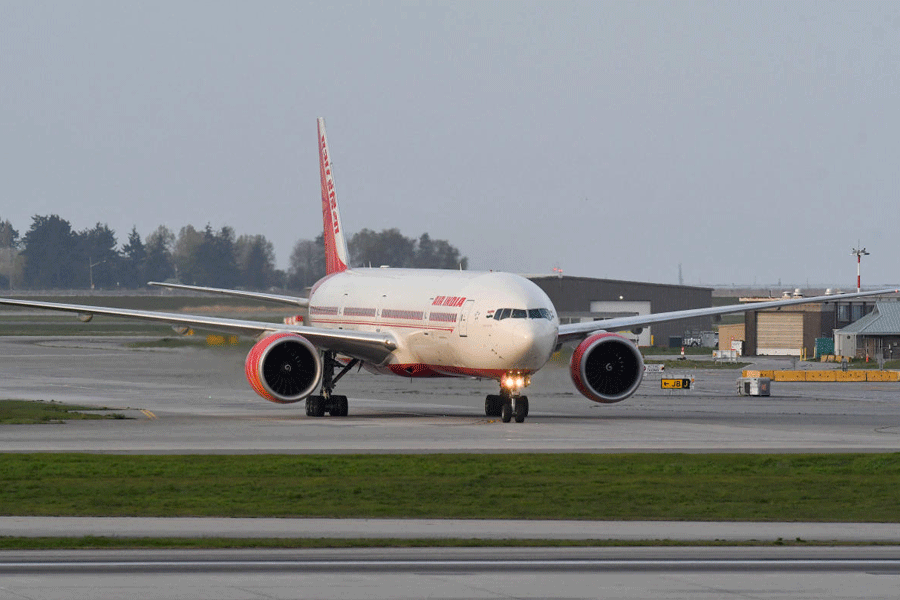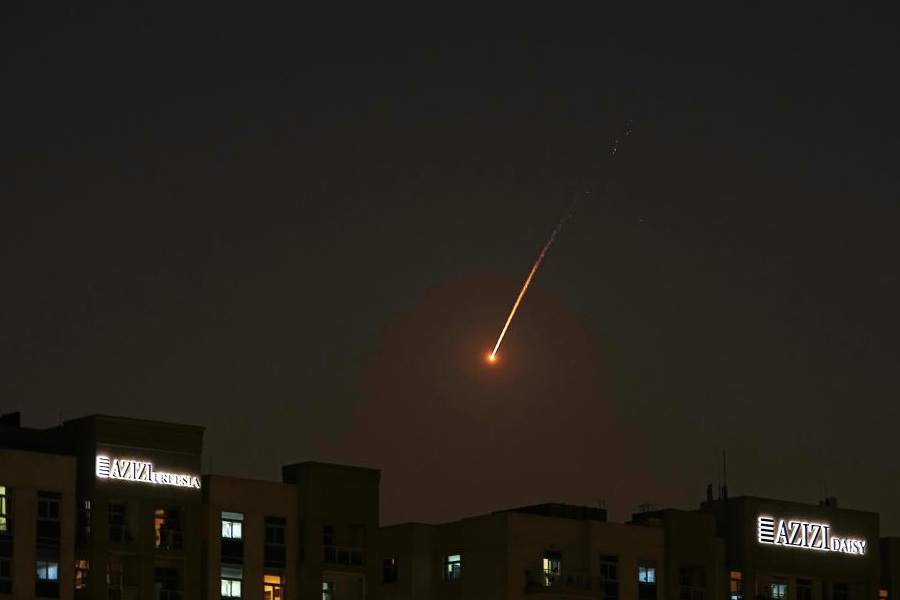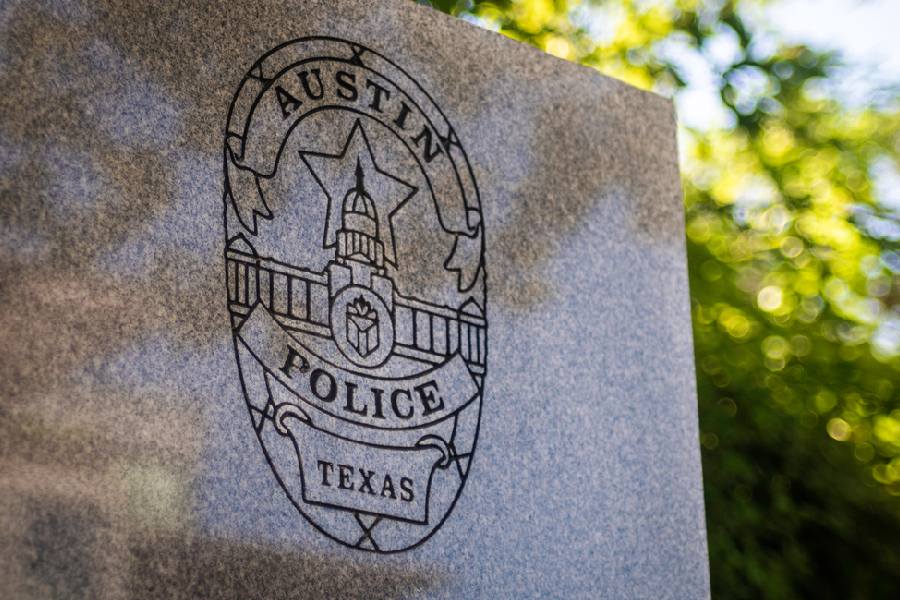Raipur, Nov. 10: Congress rebel Shankar Sodi sliced his party’s votes in the 2008 Chhattisgarh elections as an Independent, enabling the BJP to bag Bastar’s Kondagaon seat. This time he believes he will win.
“You’ll see a surprise,” he said ahead of tomorrow’s first phase of polls involving 18 Chhattisgarh constituencies, 12 in Bastar and six in Rajnandgaon. “The Congress will repent not fielding me.”
The tribal leader has been denied a ticket the second time running. The Congress has reposed its faith in Mohan Markam, a 45-year-old tribal leader who had lost to the BJP’s Lata Usendi by 2,771 votes the last time. Sodi had polled 4,627 votes — nearly 2,000 more than Usendi’s victory margin.
With Sodi and a Bahujan Samaj Party (BSP) candidate in the fray again, Usendi, a minister in the Raman Singh government, hopes for a repeat division in Congress votes.
Markam, on the other hand, claims Sodi will eat away a chunk of the BJP’s votes this time. Yet both could be wrong, because a new factor has emerged in the state’s political arithmetic since last year.
 |
The Other Backward Classes (OBCs) are bristling with discontent against the BJP and the Congress in a state where they make up over 35 per cent of the population. Analysts say the community could decide the outcome in over half the state’s 90 constituencies, including those in Bastar.
Sodi has the support of the Pichda Varg Kalyan Manch, an apolitical front of the OBCs formed last year. The Manch has unofficially “fielded” some 30-odd Independent OBC candidates while backing tribals like Sodi in many reserved seats.
Kondagaon has about 30 per cent OBC votes, which mostly went to Usendi in 2008.
The BJP has very high stakes in the first phase because it holds 15 of the 18 seats, including 11 of the 12 in Bastar, once a Congress stronghold. So far, the ruling party’s strength lay in the overwhelming OBC support it enjoyed, but the Manch is threatening that vote bank.
“The OBCs had long ago banished the Congress because of its wrong policies,” a young Congress worker from a backward caste said in Jagdalpur.
This time, the OBCs are unhappy with the ruling BJP because of a host of reasons.
New factor
“There are three new factors in the Chhattisgarh elections,” said Rajkumar Gupta, Durg-based spokesperson of the United Front, an alliance of six small parties including the Chhattisgarh Swabhiman Manch, the CPI and the Chhattisgarh Mukti Morcha.
“One, our front; two, the changed dynamics of population-based reservation, and three, this new apolitical OBC front that is backing Independents.”
“We shall spring many surprises,” promised Krishna Sahu, a leader of the Pichda Varg Kalyan Manch in Keshkal, which falls in Kondagaon district in Bastar.
“We are voting for our own (Independent) candidates. Neither the BJP nor the Congress has worked to address our issues, from political marginalisation to poverty.”
The OBC anger is particularly pronounced in Bastar, where the community not only lacks political power but claims to be at the receiving end of the twin perils of tribal attacks and false cases of atrocities committed on tribals.
“We don’t get any positions in the panchayats because Bastar is a scheduled (tribal) area; we have no say in local economic development. We too live in the forests but don’t get land or forest rights. On top of it all, there has been a steady rise in false atrocity cases against us,” Sahu said.
This anger led to the formation of the Pichda Varg Manch in Bastar. A couple of big rallies in Raipur later, many OBC leaders from other parts of the state joined it.
Quota grouse
One key OBC complaint is that they lost out when Chhattisgarh revised its reservation policy last year.
Undivided Madhya Pradesh had reserved 20 per cent jobs and education seats for the Scheduled Tribes, 16 per cent for the Scheduled Castes and 14 per cent for the OBCs. Chhattisgarh’s demography, however, is: 32 per cent tribals, 12 per cent Dalits and over 35 per cent OBCs.
Yet, when the long-awaited change in the quotas came in January last year, it read: 32 per cent for tribals, 12 per cent for Dalits and the same old 14 per cent for the OBCs. The official explanation was that the combined quotas had already exceeded the Supreme Court-stipulated ceiling of 50 per cent, so the OBCs couldn’t be given a higher quota.
The OBCs, on the other hand, are demanding a 27 per cent quota on a par with the central government’s reservation policy.
Four petitions have been filed in the state high court challenging the state quota policy. Two of them are from the upper castes and two from the Dalits, who want their 16 per cent quota restored.
The high court had stayed the new reservation policy but lifted the stay in April this year, saying all appointments made under the new policy would be subject to its final verdict.
The Congress is now wooing the Dalits. Its manifesto has promised to restore their 16 per cent quota — an issue riddled with constitutional complexities.
Close battle
The Pichda Varg Manch, however, is not a monolithic entity: it has a pro-BJP lobby too.
“A section of our voters is switching loyalties but the number is not high enough to hurt our party,” said Parmanand Sahu, a Manch mobiliser and BJP block president at Charama in Kanker district. “The government is looking into our demands.”
The state government has tried some fire-fighting. In September, the cabinet passed a resolution to form an OBC finance commission and build hostels for backward-caste students in every district.
Besides, the BJP is more organised, has more resources and boasts better booth management than the Congress, according to political observers in Raipur.
Yet the battle could be tight, mainly because even a small shift inspired by the Pichda Varg Manch can have a huge effect.
In at least ten seats last time, the BJP had trumped the Congress by margins between 109 votes (Antagarh) and 1,200 (Bastar constituency).
Congress and BJP leaders in Raipur say that at least 30 seats — one-third of the total — are too close to call, with local factors at play and the OBC vote being key. Of these seats, 11 are in Bastar, highlighting the importance of tomorrow’s vote.
The OBCs, upper castes, trading classes and a section of the tribal vote make up the bulk of the BJP’s 40 per cent vote share, which is just 1.5 per cent more than the Congress’s. The BSP has about 4 per cent support, while some 17 per cent votes are fluid.
The BJP is riding on Raman Singh’s “charisma”; the Congress has been largely rudderless since the Maoists wiped out almost its entire state leadership in May.
One of the high-profile victims of the ambush was Mahendra Karma, spearhead of the now disbanded anti-Maoist militia Salwa Judum. The Congress has fielded his widow Devati Karma from rebel stronghold Dantewada, where she will battle last time’s BJP winner Bhima Mandavi.


